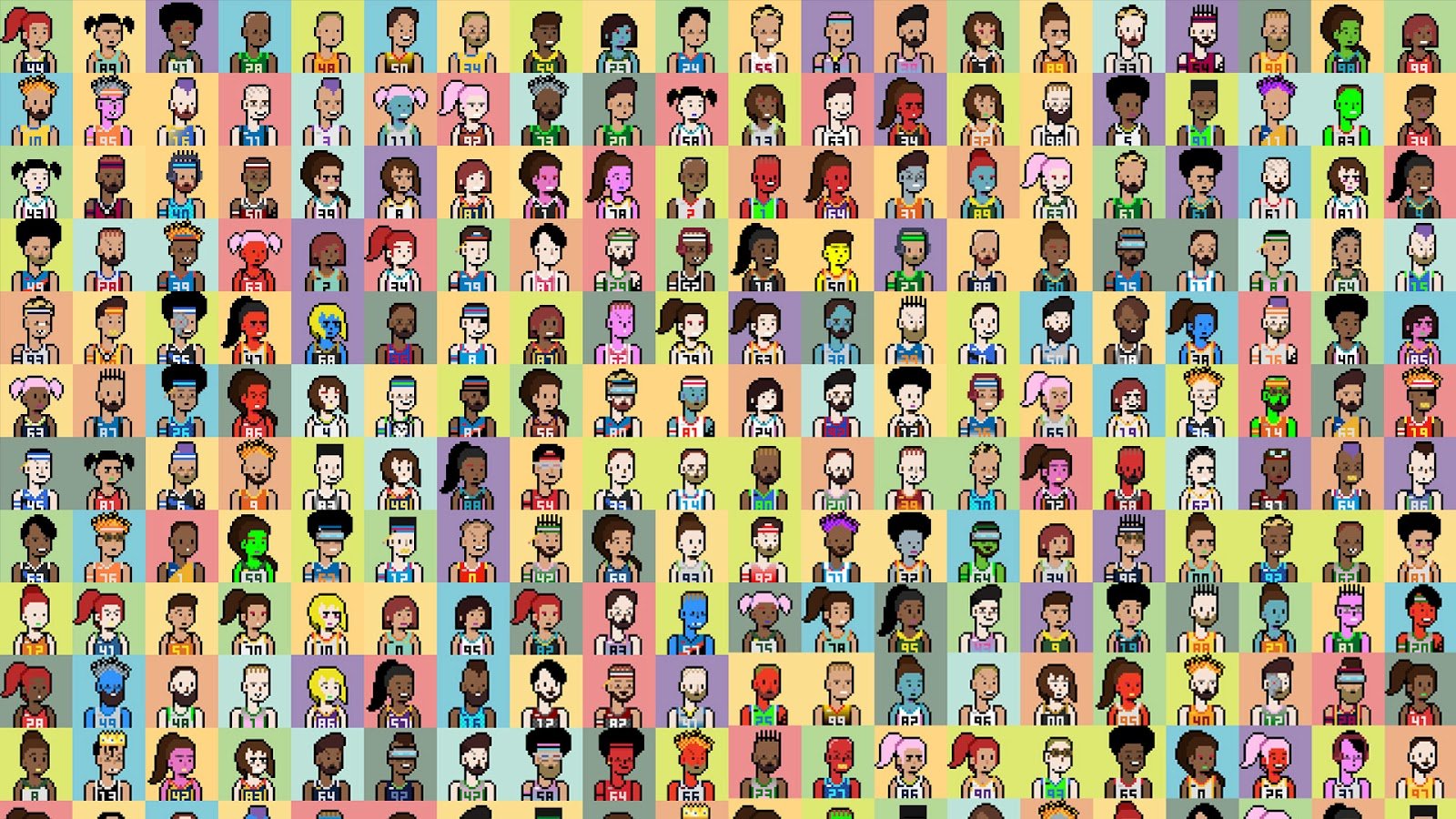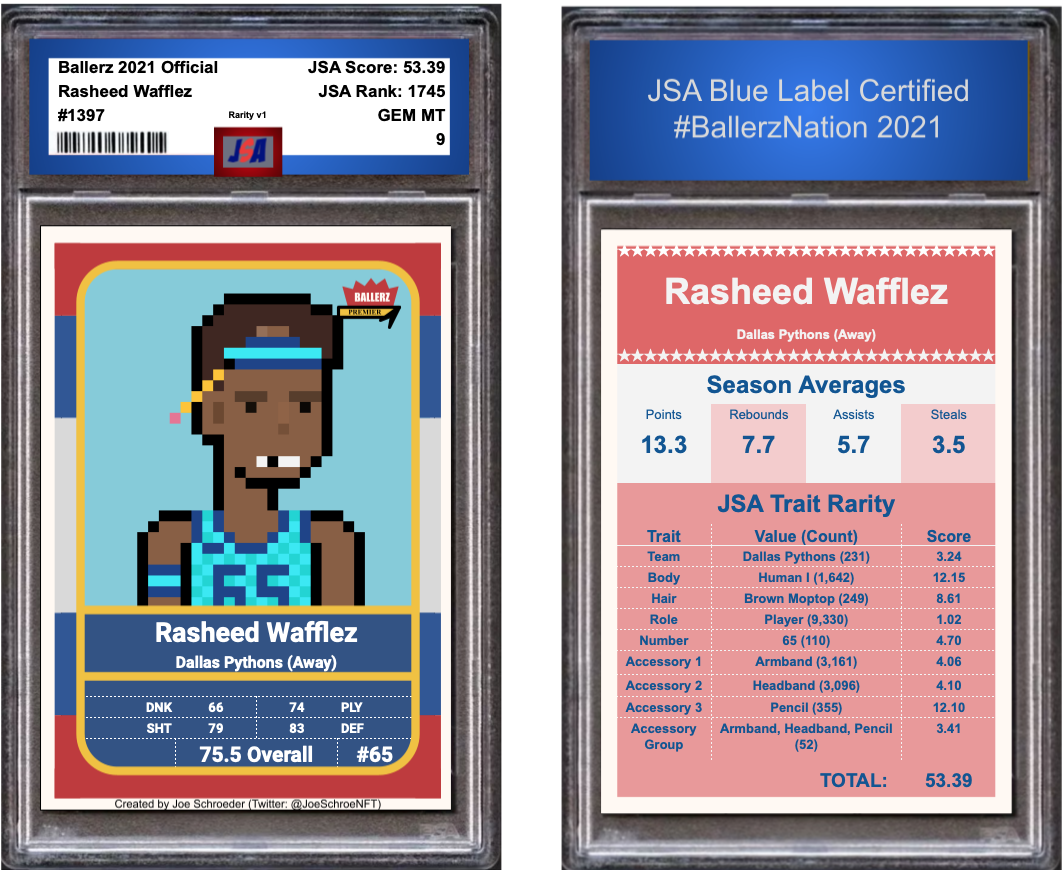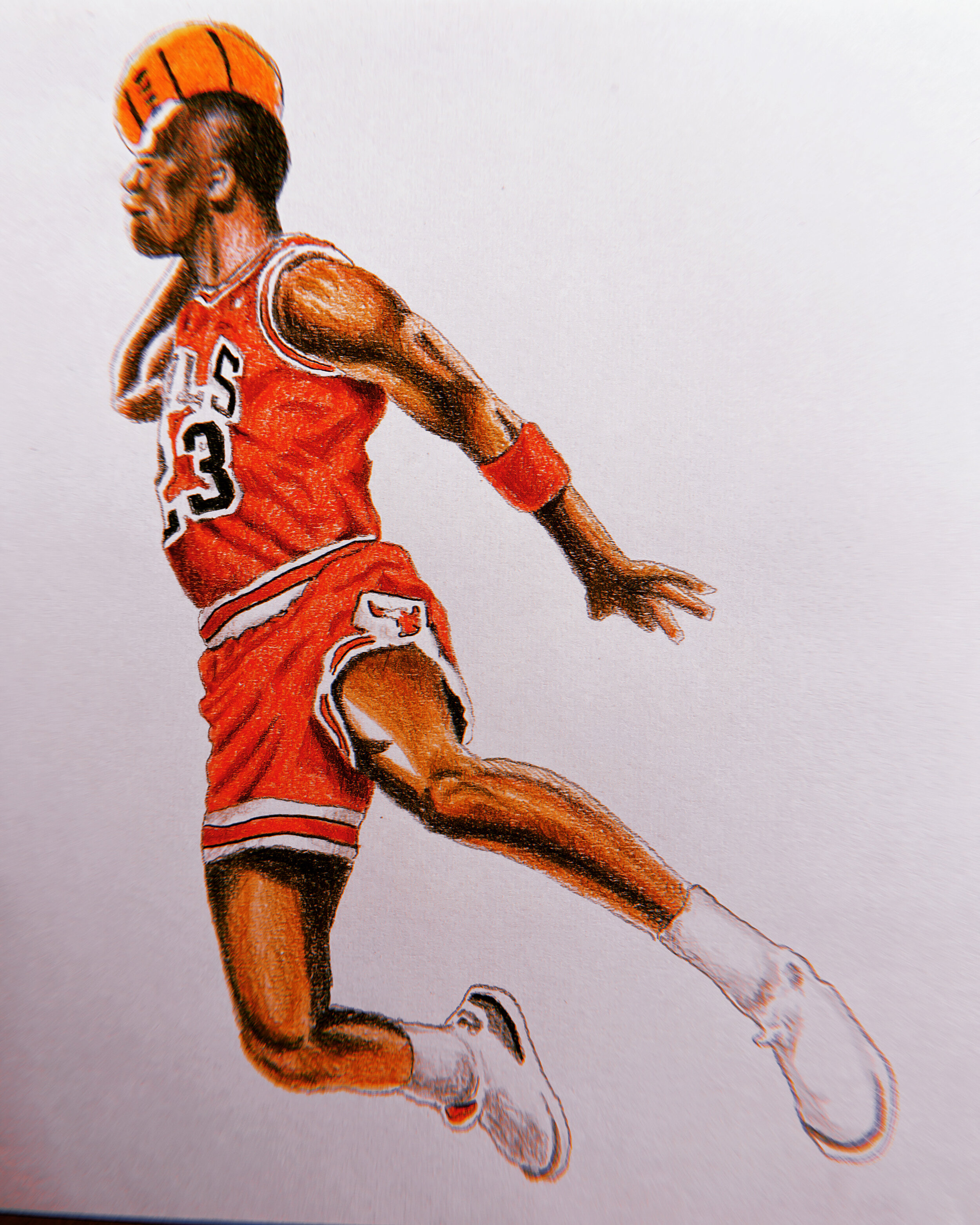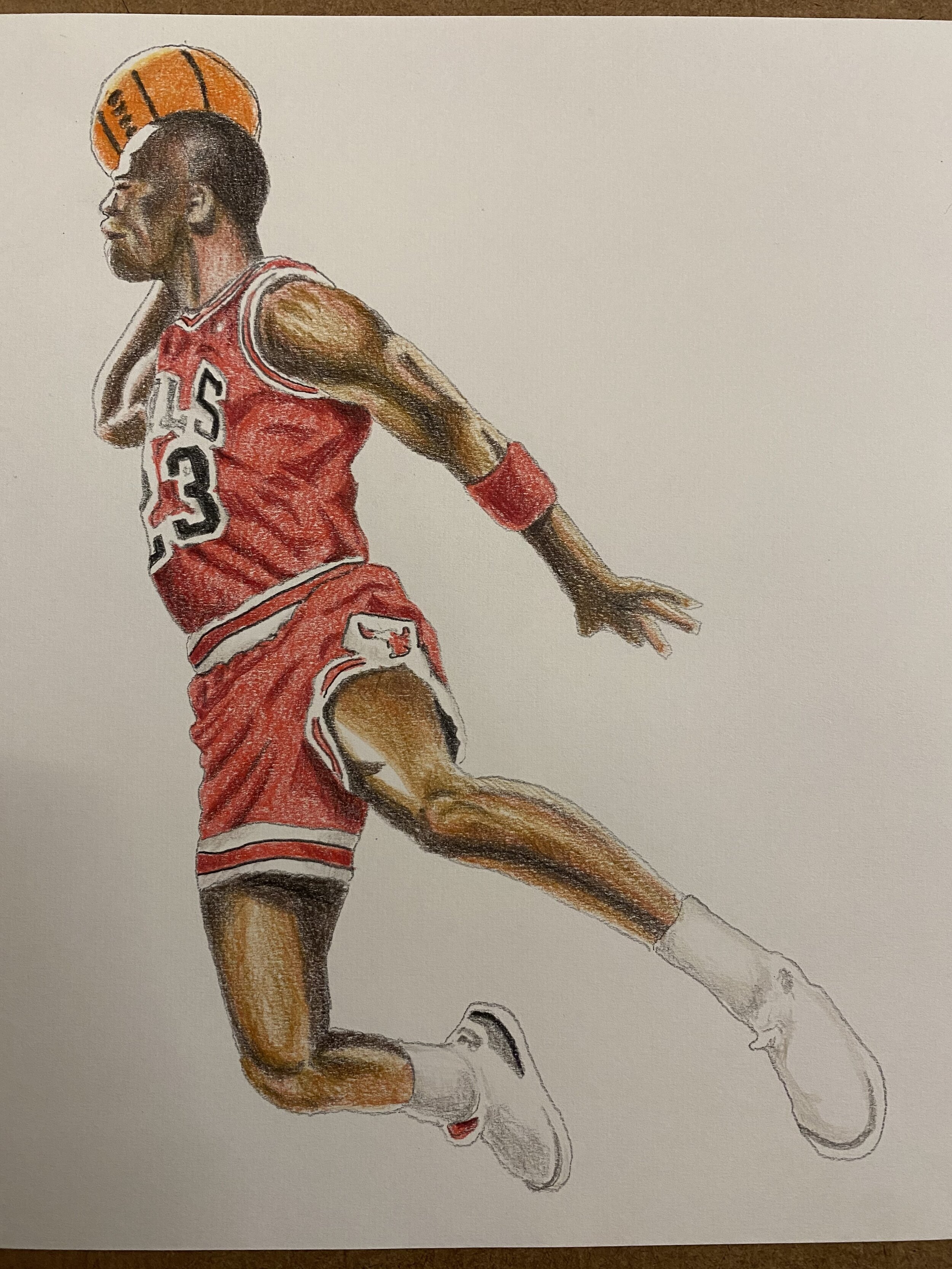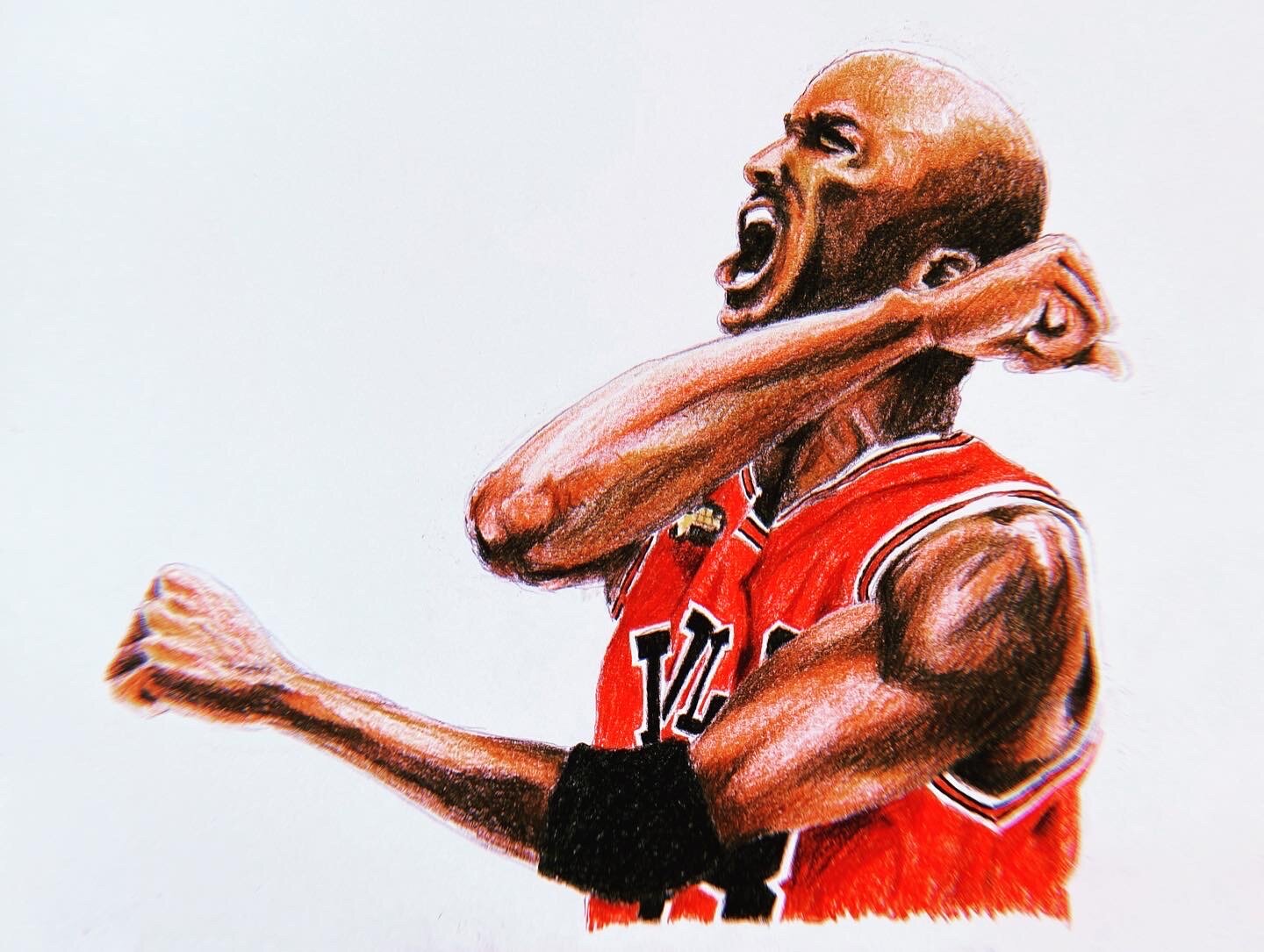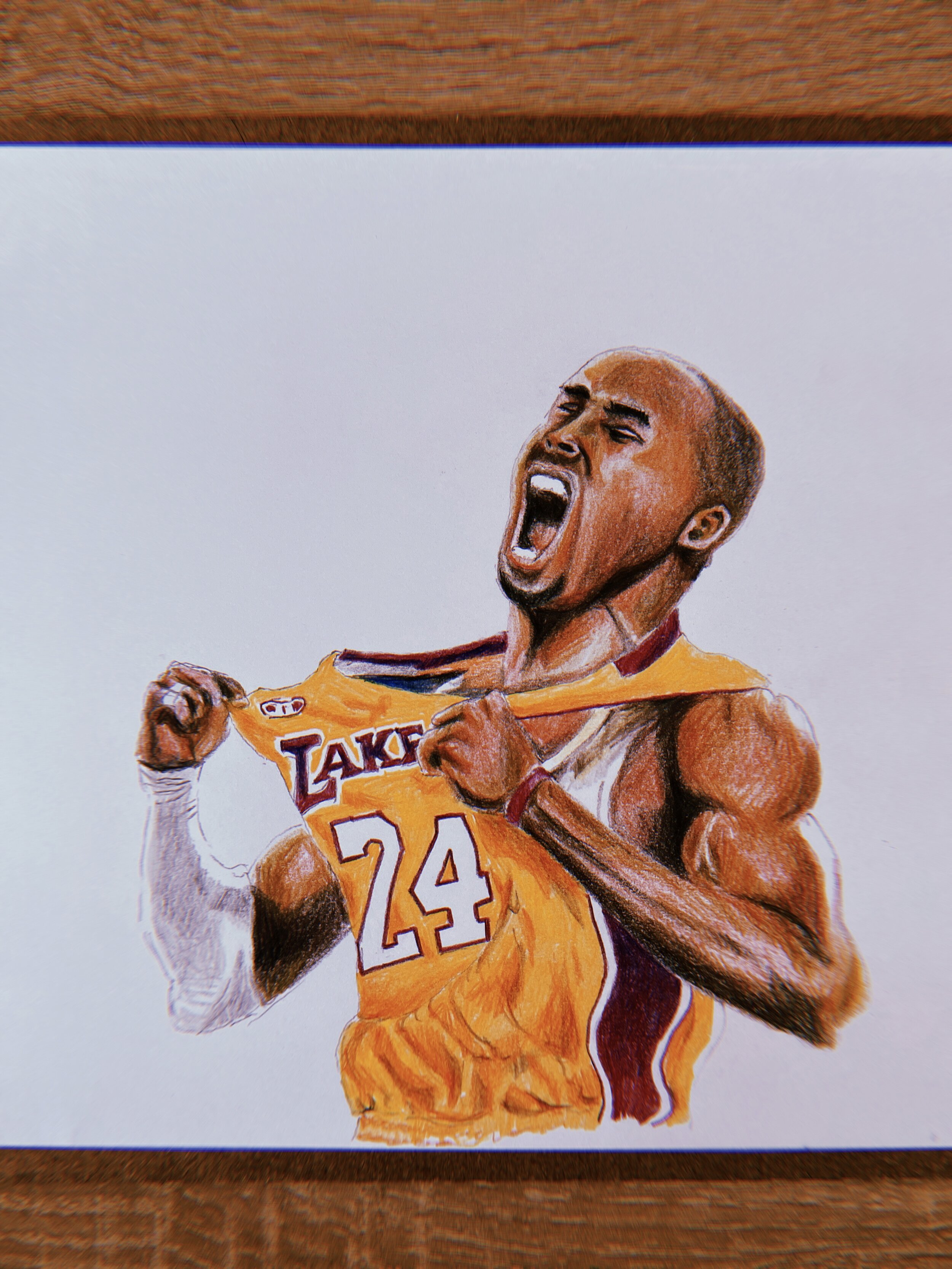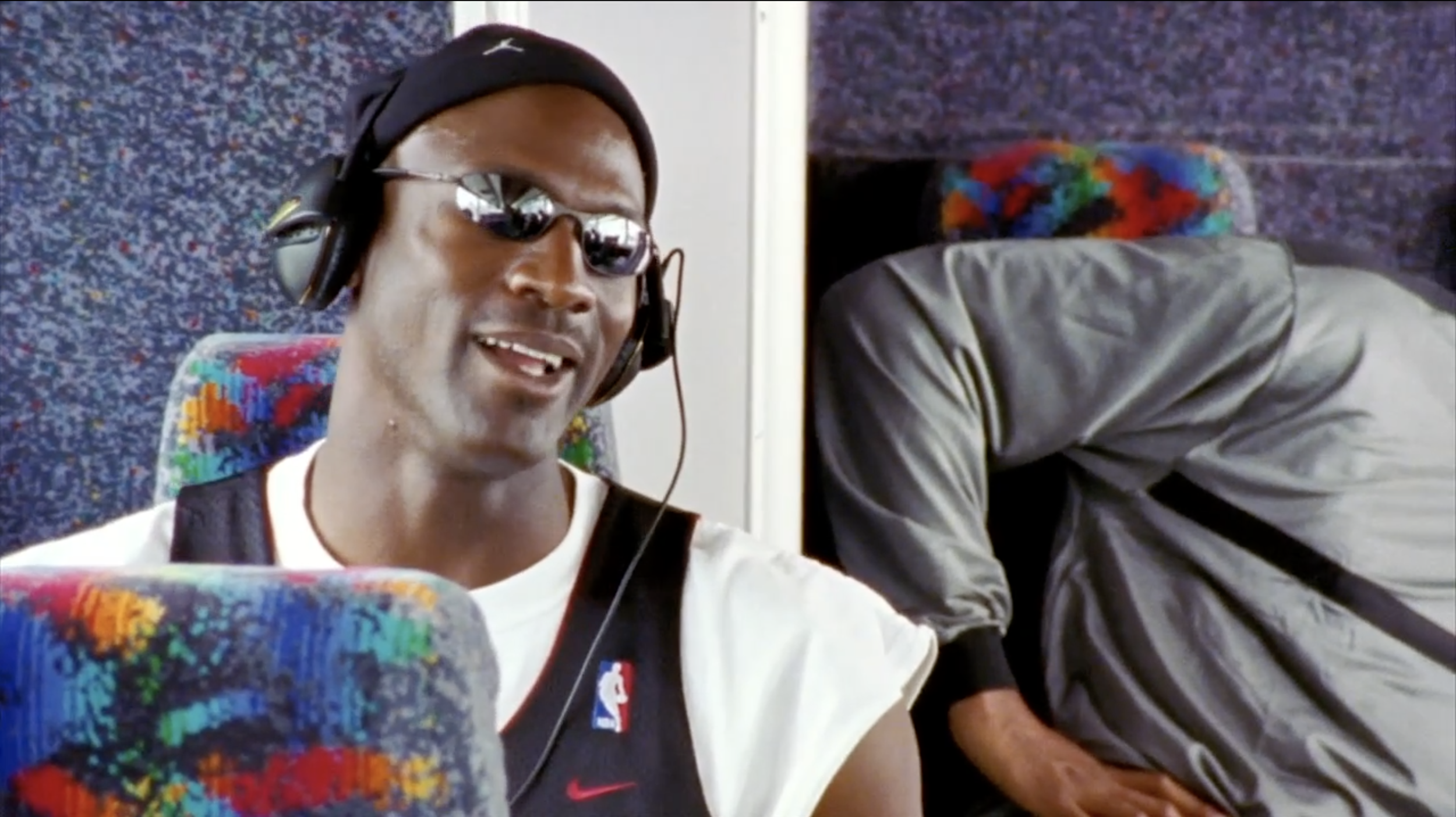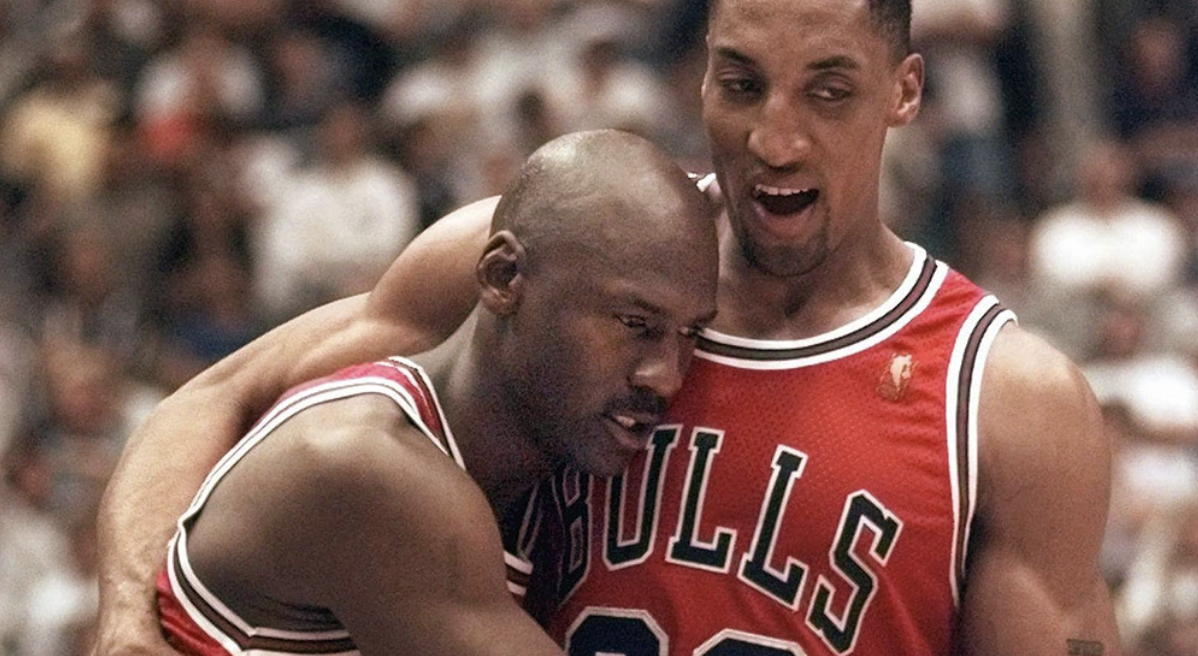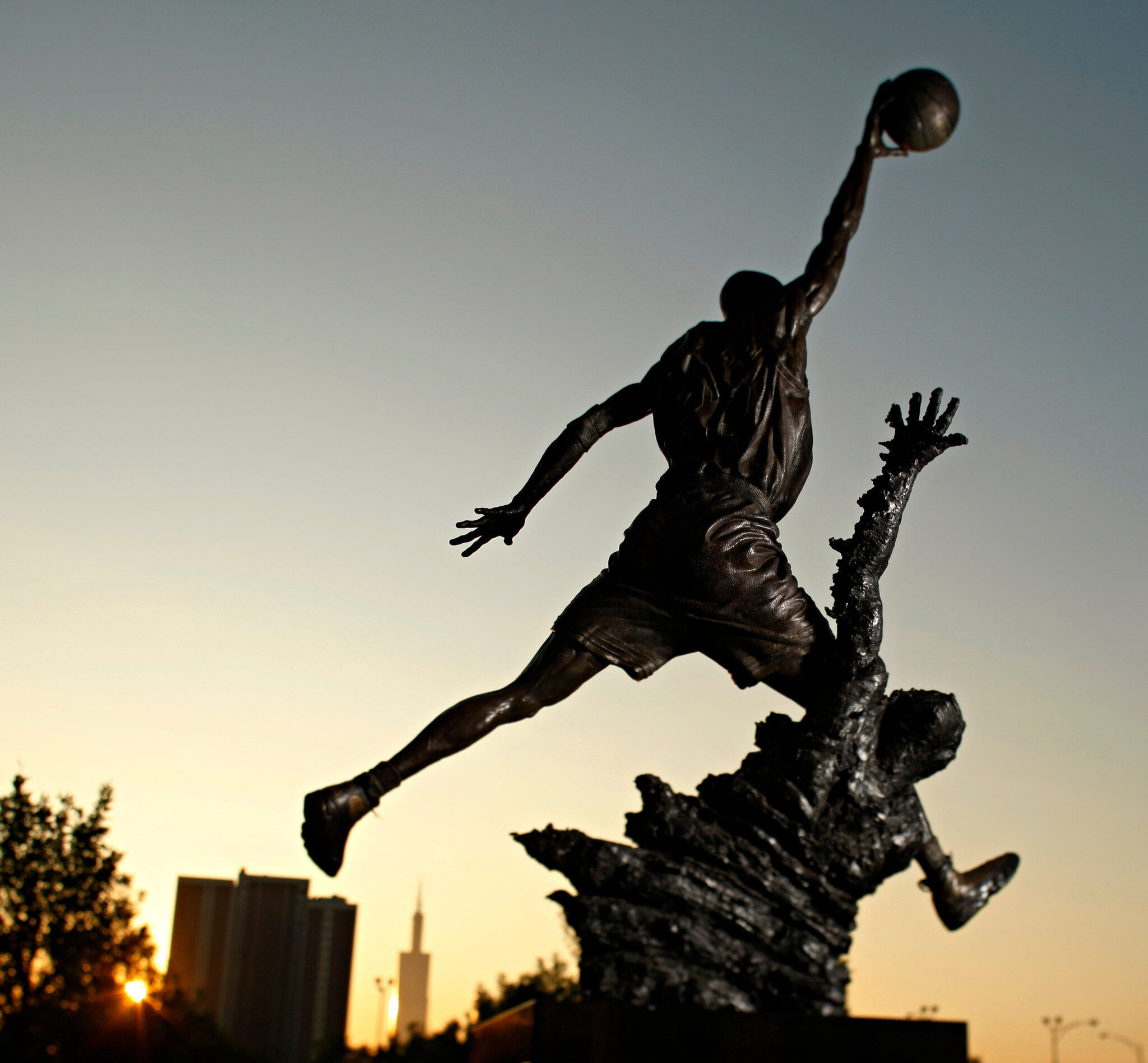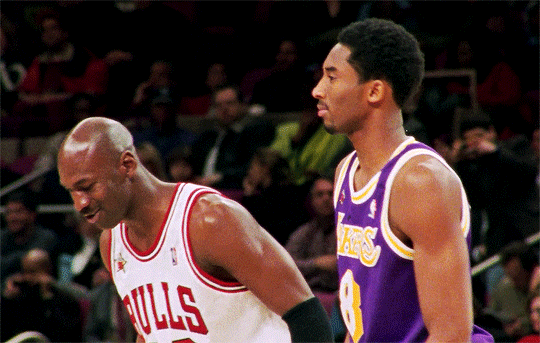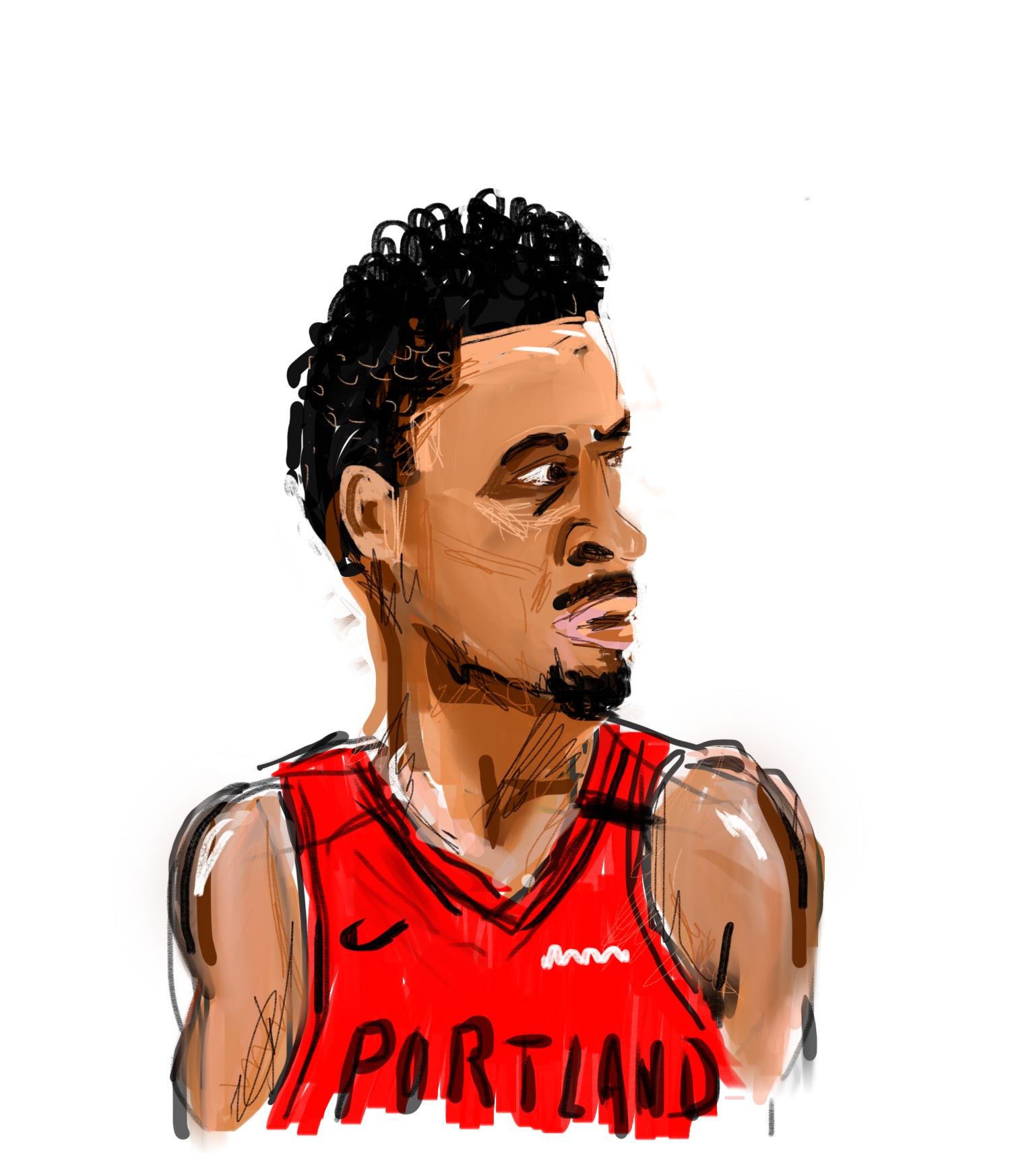To be a sports fan is to consent to a certain kind of repeating hell.
To take a ride on a fragile carousel of fleeting delights and hopes.
To have your journey hijacked by nightmares seen and unexpected.
At least that’s the kind of looping fandom experience that awaits fans of certain sports franchises. I’m not talking about perennial winners like the Yankees or Lakers or Man United. Teams with decades of titles, yet whose fans still find reasons to moan insufferably about their “misfortune.”
I’m talking about fans of cursed franchises. Like the Cubs (before they won) or the Red Sox (before they won).
I’m talking about the specific kind of prolonged cosmic agony that comes with being a fan of the Portland Trailblazers.
Live through enough of these downturns and floor drops and you’ll end up flinching at your own shadow.
Portland, an improbable place for a pro sports franchise. A tiny media market in an out of the way place. Besides being Nike’s birthplace, the Blazers have been our only point of sports pride. When the Blazers matter, so too does Portland matter. When the Blazers falter, well, um…
We’re West Coast, but we’re not LA. We’re not Hollywood, but we’re within jeering distance. It’s a a one-sided relationship that grows the chip on your shoulder. The identity of outcast and underdog is readily available. We’re a band of hippies, that place Steve Jobs fell in love with typography, a handful of Ken Kesey novels, a smattering of bookstores and strip clubs—and lush, green nature full of mountains and trees for us to get lost in and find ourselves again.
But back to the Blazers. Back to day Zero.
Us Blazermaniacs are hurting today.
There is always a dull pain, but today, for the first time in 11 years, Damian Lillard is not a Portland Trailblazer. Man, it hurts to type that.
For over a decade, his singular passion and loyalty emanated and elevated our city of roses and made Portland matter in the sports world. No, sadly we didn’t win a championship. But we became the stage of a unique and legendary basketball talent. A man who was a trailblazer in his very being. Who did things his own way. Going directly against the way things were always done, and catching flack for each of his legacy building moves.
With Nike in his backyard, Lillard went counterintuitive to three stripes, becoming the cornerstone of their basketball business and securing a 300 million plus bag in the process. He pushed through the cliche of athletes having “music” projects, and kept developing his skills, dropping tracks and albums every year as Dame D.O.L.L.A.—pulling noteworthy features along the way. From the jump, there was something different about this undersized point guard. He defied cliches and had a specific vision about who he was.
And all the while, he was a gym rat. Obsessively tuning and optimizing his game. Displaying a rare competitive drive that closely aligned with Kobe Bryant’s notorious Mamba Mentality. Kobe even recognized the greatness in young Dame, singling him out with uncharacteristic praise for an opponent. Those who knew basketball deeply, saw something in Dame’s emerging talent.
Dame continued to go off. Each season showing more bravado. Getting faster, sharper and trickier. Extending his three-point range to video game distances that forced conversations about the NBA adding a four-point line. He and Steph Curry made shooting from half-court a part of their arsenal. It seemed like an audacious one-off when Dame launched his first “logo” three, but the long distance bombs never stopped. They only grew more frequent. Dame was evolving into one of the most potent scoring machines in his era.
Slowly, Portland realized that we weren’t just watching our guy, but that Dame was putting on displays of all-time greatness. The basketball gods had illuminated his game. Dame transcended playing in a small market and showed up with a big time persona.
It was the era of Dame Time.
The accolades came. All-star appearances. Olympic gold. Impressive scoring averages. Three point records. Eventually Dame passed Hall of Fame legend Clyde Drexler to become Portland’s all time leading scorer. LeBron James even tapped Dame to co-star in Space Jam 2. Dame was the ultimate big fish in a small pond, and it never held him back. He was growing into a superstar on his own terms.
As Dame matured into a veteran, he eschewed the NBA trend toward superstar buddies joining up to create super teams. Dame emerged as the vocal antithesis of this mindset. He was determined to stay on his grind. He backed it up in his actions, on podcasts and the lyrics of his tracks. He was determined to win, unconventionally, with loyalty. It was a noble stance that drew heat and fire from media and fellow athletes the brighter Dame’s star burned. In an era that glorifies rings above all else, Dame was going to get there on his own path.
Sadly, Portland’s front office failed Dame. They failed to match his from a different time loyalty. They failed to surround him with balanced talent that complimented his outlandish game. And so, year after year, Portland languished and Dame would need to carry the entire franchise and city, making up for obvious roster holes.
There were highlights and miracles and blazes of hope along the way. There were game winners and series winners. The spotlight shone solely on Dame and Dame delivered. Earning a reputation for being an all time clutch performer. Despite never having made the NBA Finals.
There was even an improbable, cinderella run to the Western Conference Finals a few years ago. The farthest the Blazers would ever go in the Dame era. The team sadly ran out of steam and ended up being swept by Steph Curry and his Warriors dynasty. But Dame didn’t hang his head. As always, he had overachieved. He got back in the gym and stayed on his lonely grind.
All this time, for 11 years, Dame was a rock. A leader and a professional. Never dodging the media and always speaking his mind with respect. Dame is a throwback. His values are entrenched and he operates on a personal code that prides itself on loyalty and commitment.
For 11 years, we were blessed with this loyalty in Portland.
On paper, loyalty was returned. His contracts from the Blazers earned him nearly half a billion dollars, one of the richest hauls in pro sports. And that doesn’t count what his personality and story earned him from his 300 million shoe deal and other endorsements. Portland made the right business moves to reward the face of the franchise. But beyond the paycheck, loyalty was woefully lacking.
Somewhere over the course of this summer, the wires got crossed. Portland decided to move on from Dame, and unfathomably didn’t give him the heads up. Instead they went out and drafted a rookie, who has echoes of a young Dame and plays the exact same position. It was the last straw.
Portland could have worked with Dame by trying to bring in veteran pieces that complimented and enhanced Dame. That’s the basic strategy when you have a singular superstar, you build around them. But in making their brash choice, Dame’s hand was forced, and on July 1st he formally requested a trade. The face of the Blazers for over a decade wanted out.
And yesterday, he got his wish.
And for Blazer fans, our worst fears have manifested again.
Today, we add to our impressive resume of misfortune.
The tragedy and business of sports dictates that those who care most deeply about the team and its players, have zero say in the team’s path. A path that has included such spectacular lowlights as:
-Being the team that could have drafted Michael Jordan, but didn’t.
-Being the team that could have drafted Kevin Durant, but didn’t.
-And now, being the team that willfully ignored the wishes of it’s greatest player and most loyal athlete of the modern era.
Yes, woe is always us. But today is about Dame.
Today we lose a major piece of our identity for the past 11 years. No doubt we’ll have phantom limb syndrome and live vicariously through the triumphs Dame achieves in another city. It’s not possible to stop reacting to the thrill of a Dame half-court shot.
To Dame, THANK YOU.
Thank you for your class and heart. Thank you for embedding yourself into the Portland community and all the good you do in the city. Both loudly and quietly. You will forever be our true mayor.
Thank you for making Portland matter again. When superstars came into our house, you stood up for us and fought back. Thank you for the insane threes and game winners. Thank you for the professionalism. We’ve seen our share of dark and embarrassing times, but with you as our leader, there was only pride. Only class and wide-eyed truthfulness.
You made us stand up straighter and puff out our chests. We could claim you as our own and hitch a ride to the stratosphere as your star rose.
These past three months have been a lot. Amid all the trash talk and sports media hype, it still felt like the basketball gods might intervene and find a way to keep you in a Blazer uniform.
Today we know that was wishful thinking.
Anyway, go get your ring. Go get a couple.
And when it’s all said and done, we’ll beam with pride knowing our guy did it. Hell, we’ll even dream of you coming back to Portland as a champ and leading us to the promised land and that parade down Broadway you prophesied about years ago.
Bridges may have been burnt in how this all went down, but luckily this is Portland and we have a lot of bridges.
Until then, go get it Dame.

